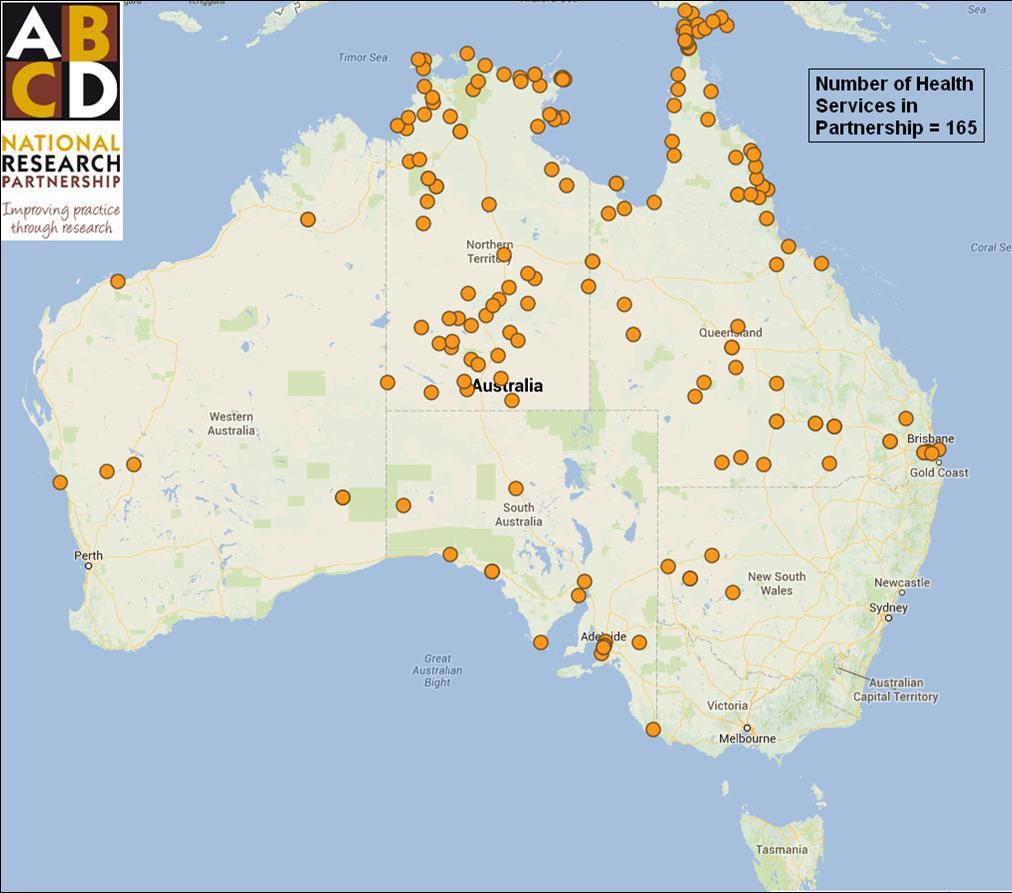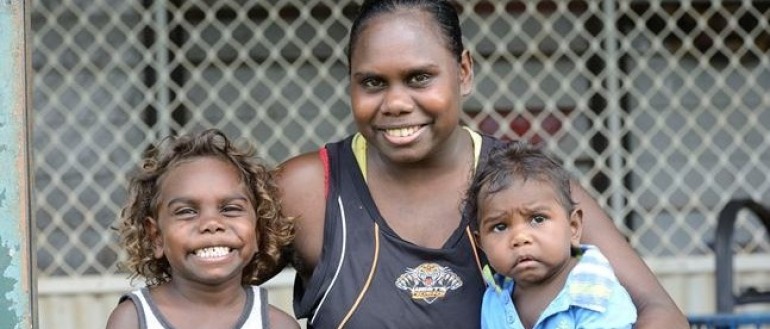National and regional research program:
The Partnership aimed to:
- investigate the variation in quality of care in Indigenous primary health care (PHC) centre
- explore the underlying factors associated with variation at the health centre and regional level
- identify and examine specific strategies that have been effective in improving primary care clinical performance.
Click here to download a Research Focus 2010-2014 brochure.
The research program utilised expertise and skills from academia, policy and service levels across Australia and is focussed on the project objectives. The Partnership provided a structure that facilitated service and policy driven research that was cross jurisdictional, cross sector and trans-disciplinary. This collaborative approach and access to a national data set provided opportunities for analysis at a national level and for more in-depth research to achieve the objectives of the project.
National research priorities were identified through analysis of the national data set, consideration of emerging health issues, and areas of common interest across jurisdictions. Regional research priorities were identified by state and territory steering committees supported by State and Territory Research Officers who facilitated this process through consultation with service providers and policy makers.
A collaborative approach that included active involvement of end users throughout the process, from identification of research topics to implementation, was used to develop and implement research projects to address identified priorities. Each project had an advisory/reference group comprising end users, key stakeholders and experts, including service providers, clinical experts, policy makers and quality improvement experts.
Data were extracted from the One21seventy web-based database for services who agreed to participate in the Partnership. Individual client data and service names were de-identified and any identifying information was not published without the prior consent of the service. Data at the national and jurisdictional level were available to researchers for projects that were approved by the Research sub-committee and had ethics approval.
Research under the Partnership had to have ethics clearance from the relevant ethics committee and have approval from the Partnership Research Subcommittee. This committee consisted of seven members including academics and health department researchers from NT, WA, Qld and the PCC, and oversaw all aspects of the research program, strengthening research projects through feedback to researchers. This included providing advice and support on the development and implementation of projects, assessing and approving projects, monitoring progress and advice and approval of manuscripts for publication, policy briefs, or research reports. Researchers were required to submit an Expression of Interest to the Research Subcommittee prior to accessing data.
Click on the following poster links for further details of the national and regional research program:
- CQI + Research + Change Advocates = Improvements in Primary Health Care
- How PHC services can improve quality of care through CQI research and shared learning.
Participating Primary Health Care (PHC) Centres:
As at July 2013, 165 PHC centres (132 Government health services and 33 community controlled services) had agreed to participate in the research project. This was formalised by signing the ABCD National Research Partnership Agreement between Menzies, the PHC centre or Health Department and the Regional Project Leader. The PHC centres agreed to contribute their de-identified CQI data from the One21seventy data base into a national pool for broad analysis of variation in health care delivery and to answer key questions of relevance to policy and practice. They also had an option to participate in more in-depth studies and to lead and/or participate in research driven by locally identified needs.
This map gives an overview of the location of the health services that were involved in the Partnership:


